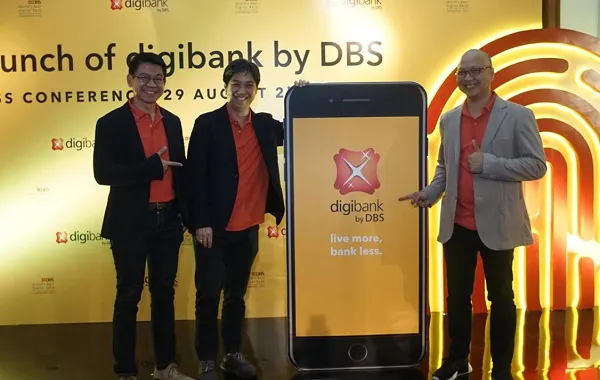
A closer look at a ‘whole new way of banking' taking over India, Indonesia
DBS is changing the way people do their banking in two of the most populous countries in the world with its revolutionary digibank initiative.
On 8 November 2016, something happened in India that completely shook the country’s whole economy — the government announced a widespread demonetisation of the (then) two biggest banknotes in circulation (INR500 and INR1,000). The reason? The Government of India wants to curtail the country’s lingering shadow economy, stop money laundering, and crack down on the use of illicit and counterfeit cash that can be used to fund illegal activity and even terrorism. However, the technical (and sudden) nature of the policy’s implementation saw an economy disrupted as capital liquidity became affected and people started suffering from prolonged cash shortages as the physical banknotes tucked away in their wallet was suddenly rendered useless.
But in the run up and the immediate aftermath of the policy’s implementation, something noteworthy happened in the digital space: more people started using digital modes of payments including mobile and internet banking. Around 22% more people started using cashless payments a month before the demonetisation announcement as compared to the number of people using various modes of digital payments in 2015, according to data from the Reserve Bank of India. Mobile banking usage, for instance, grew rapidly from October 2015 until July of this year — covering the period when the policy was announced — with a 244% increase on volume of transactions and 185% climb on value. Even usage rate of Immediate Payment Services posted stellar numbers, growing 255% in volume and 326% in value over the same period.
This phenomenon was (and still is) something that DBS Bank, Singapore’s largest bank and a leading financial institution in the Asia Pacific region, is looking to leverage on and take advantage of when it launched its digibank initiative in India in April last year. Digibank, considered as India’s first mobile-only bank, offered something refreshing and timely to the increasingly tech savvy and highly connected Indian population with a whole range of technologies to revolutionise traditional banking.
“[Digibank is] a revolutionary offering. It brings together an entire suite of ground-breaking technology — from biometric authentication to artificial intelligence (AI) — to enable customers to enjoy a whole new way of banking,” said Shantanu Sengupta, MD & head, consumer banking group, DBS India.
It’s easy to see why India was the first city DBS decided to launch its pioneering digibank initiative in. India is the second most populous nation in the world (with over 1.3 billion people), with almost 30% of those or around 380 million connected or have some access to the internet. Moreover, India leads the world in mobile internet usage, with 79% of all people who access the internet using their smartphones instead of the traditional desktop or laptop.
“With its large, digitally savvy population and [an] enabling government infrastructure, the growth potential for digital banking is huge,” said Sengupta. “This is why we chose India as the first market to launch digibank last year.”
A break from the mould
DBS’ digibank initiative is, in a way, a break from the traditional mould of how banking used to be (and still is). Whilst the internet has been making headways in every aspect of people’s lives, majority of financial institutions still heavily rely on bricks and mortar transactions and physical papers being filled out as documentation. Digibank, in a nutshell, offers a complete about face from this tradition by offering a completely paperless, signatureless, and branchless banking experience.
And this has been making headlines and producing stellar figures a year after its launch in India. Sengupta shared that after just 12 months of digibank’s launch, over 1.5 million people have already signed up for the service — “all without stepping foot into a branch” — and bigger numbers are expected to pour in. The relatively early success of DBS’ initiative, particularly for the Indian market, boils down to three things: convenience, technological leverage, and understanding of its potential market.
In terms of convenience, digibank allowed people to open their accounts without requiring them to go to a physical branch and provide numerous documentation and paperwork just to be accredited. DBS allowed partner institutions, including over 500 cafés across India, to open people’s accounts using only their Aadhaar card, a biometrics-enabled ID issued to over 1 billion people in India. Added to this is the higher interest earnings (7% from the first rupee) as well as the no minimum balance requirement — an attractive offering for its potential market.
The initiative also leveraged cutting-edge technology. For instance, customer service is provided 24 hours a day, 7 days a week through an AI-driven Virtual assistant. People can ask frequently asked questions like their most recent transactions or account balance and get instant answers, eliminating the need to talk or interact with a call centre agent and make the whole process more efficient and effective. At the time of the initiative’s launch, the Virtual Assistant can already answer 10,000 customer questions, with new knowledge added as it matures in its role over time.
Digibank also boasts of a built-in budget optimiser that helps customers do their budgeting, track expenses, and analyse their purchasing trends. The way the technology is designed is for it to understand customer behaviour and preferences, synthesise data, and provide recommendations, for example, restaurant discounts or airfare promos — something that bodes well to the increasingly mobile, millennial, travel enthusiastic, and connected young population in India.
A cornerstone of DBS’ digibank initiative is the security it provides to its current and future clients through the platform, making it more enhanced through the use of dynamic inbuilt security instead of the traditional One-Time Passwords (OTP). Sengupta shared that DBS recognised that safety is one of the most pressing concerns of people when it comes to digital banking, hence the decision to go with dynamic inbuilt security as it offers better peace of mind. “Digibank has an embedded soft token security, avoiding the need to wait for SMS to arrive and providing even stronger security for transaction authorisation,” he added.
Same service, new market
Riding on digibank’s success in India over the past year, DBS is now venturing into new markets with the initiative launching in Indonesia — the world’s fourth most populous country — in August this year.
Just like India, Indonesia offers the same promising prospects for the growth and development of digital banking. Rudiantara, Indonesia’s Minister of Communication and Information Technology, shared in a release that the country’s digital economy is expected to reach US$130 billion, or 12% of GDP, in 2020. This is because, according to a recent survey, over half (51.8%) of Indonesia’s population is connected to and are active users of the internet, while 91% of people own a mobile phone. E-banking is also gaining ground, according to the country’s financial authority services, with users growing from 13.6 million in 2012 to 54 million in 2016 and transaction volume almost doubling over the same period.
“We’ve witnessed a change in customer behaviour and people increasingly want a simple, fast, and effortless way to bank,” said DBS Indonesia president director Paulus Sutisna. “As a bank that is committed to shape the future of banking, we’re excited to introduce digibank in Indonesia, giving customers the ability to bank anytime, anywhere.”
The digibank initiative in Indonesia is highly similar with the one in India in terms of technology and offerings, although there are some subtle differences. Opening a digibank account is done through a mobile digibank agent while leveraging E-KTP, a biometrics-enabled ID programme in the country. Digibank customers can earn 3% interest from their first rupiah, and opening an account requires no minimum balance. Clients also enjoy DBS’ regional connectivity, making it easier and more convenient to withdraw money, for instance, in Singapore at no additional fees.
“With digibank, we’ve built a bank that pulls together the power of biometrics, natural language, artificial intelligence, and inbuilt security in one offering,” shared Piyush Gupta, DBS CEO, in a statement. “We believe this mobile-led offering represents the future of banking, and are excited to introduce this to Indonesia.”
In photo (left to right): DBS Indonesia Consumer Banking Director Wawan Salum, DBS Indonesia President Director Paulus Sutisna, and DBS Indonesia Digital Banking Head Leonardo Koesmanto posed together at the Press Conference of digibank launch in Bank Indonesia Museum, Jakarta, 29 August 2017.
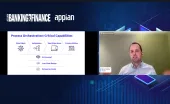
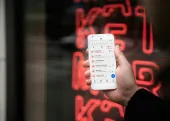

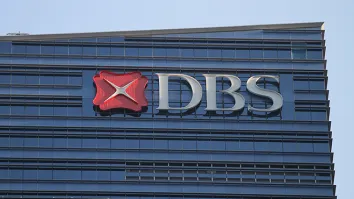


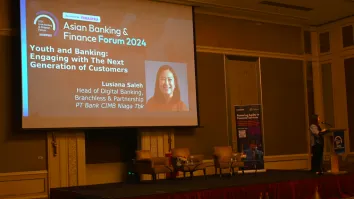

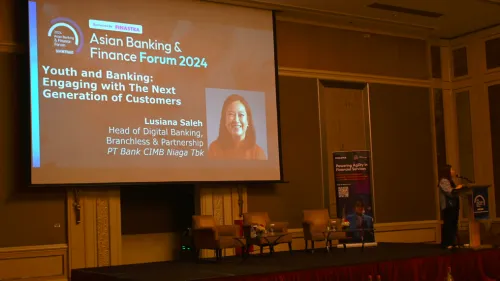
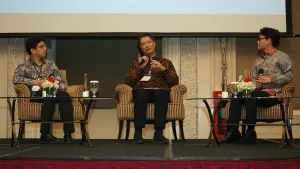
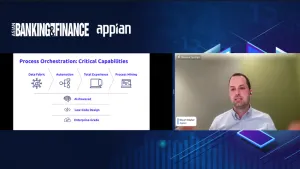
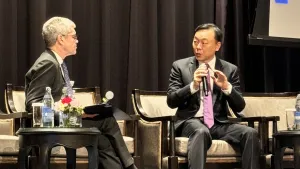




 Advertise
Advertise






